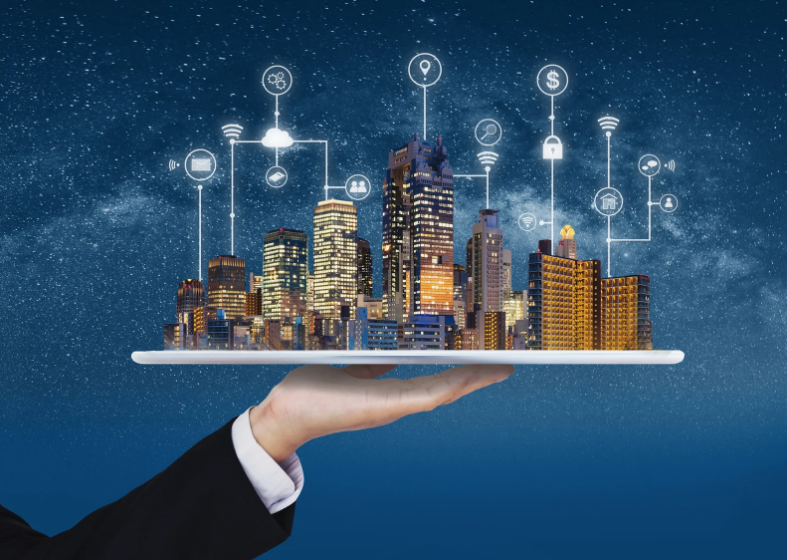Modern urban development demands a balance between security and sustainability, and this is where advanced building services play a crucial role. In cities like Singapore, where technological innovation and environmental consciousness drive progress, integrating smart solutions into infrastructure is more important than ever. Advanced building services provide a seamless blend of safety, energy efficiency, and intelligent automation, ensuring that buildings are not only secure but also environmentally responsible.
The Role of Advanced Building Services in Security
Security is a fundamental aspect of infrastructure, and advanced building services leverage cutting-edge technology to enhance protection. In Singapore, high-tech surveillance systems are a key component of modern security frameworks. Smart CCTV cameras equipped with AI-driven analytics allow real-time threat detection and facial recognition, significantly reducing security risks.
Another essential element of advanced building services is access control solutions. From biometric scanners to RFID-enabled keyless entry, these technologies provide robust security in residential and commercial buildings across Singapore. With the increasing risk of cyber threats, advanced building services now include cybersecurity measures that protect IoT-connected security systems from hacking attempts.
Moreover, smart emergency response systems enhance safety by integrating fire detection, automated alerts, and remote monitoring. By adopting these innovations, Singapore continues to set an example in creating safer urban spaces with advanced building services.
How Advanced Building Services Enhance Sustainability
Sustainability is a major priority in the construction industry, and advanced building services are transforming how energy and resources are managed. In Singapore, where green building initiatives are widely encouraged, smart infrastructure solutions contribute to achieving environmental goals.
One of the primary features of advanced building services is energy-efficient lighting and HVAC systems. Smart sensors and automation optimise electricity usage, significantly reducing energy waste. Buildings equipped with automated climate control systems ensure that air conditioning and ventilation adjust dynamically based on occupancy, leading to lower energy consumption.
Water conservation is another key focus of advanced building services. In Singapore, smart water management systems detect leaks and regulate water usage, helping to maintain efficiency in residential and commercial buildings. Additionally, sustainable materials and eco-friendly construction techniques contribute to the reduction of the overall environmental footprint.
Furthermore, building automation systems (BAS) allow seamless integration of sustainability practices. These systems monitor and control various building functions, from lighting to security, ensuring maximum efficiency. By implementing advanced building services, cities like Singapore are moving towards a future of smarter, greener infrastructure.
The Intersection of Security and Sustainability
Security and sustainability may seem like separate concerns, but advanced building services show that they can work together effectively. Many modern buildings in Singapore incorporate energy-efficient security solutions, such as solar-powered cameras and low-energy alarm systems. These innovations reduce energy consumption while maintaining a high level of security.
Smart sensors and IoT technology play a crucial role in both security and sustainability. For instance, motion-activated lighting ensures that security lights operate only when necessary, conserving electricity while maintaining safety. AI-powered analytics within advanced building services optimise energy use while simultaneously enhancing security protocols.
Additionally, green security measures such as smart glass windows that adjust based on sunlight help regulate indoor temperatures, reducing reliance on artificial cooling while keeping buildings secure. The integration of sustainable security solutions through advanced building services ensures that infrastructure development remains both safe and eco-friendly.
Challenges in Implementing Advanced Building Services
Despite the benefits, implementing advanced building services comes with its challenges. One major hurdle is the high initial investment costs. While smart security and sustainability solutions provide long-term savings, the upfront cost can be a deterrent for some developers in Singapore.
Another challenge is the technical complexity of integrating various systems. Many advanced building services rely on IoT connectivity, which requires seamless coordination between hardware and software components. This complexity can lead to maintenance challenges and the need for specialised professionals to manage these systems effectively.
Cybersecurity risks also pose a significant concern. As more buildings in Singapore adopt smart technologies, the threat of cyberattacks increases. Ensuring that all advanced building services are equipped with robust cybersecurity measures is essential to maintaining secure infrastructure.
Finally, compliance with local regulations and environmental standards is necessary for successful implementation. In Singapore, buildings must adhere to sustainability benchmarks such as the Green Mark certification, which requires careful planning and execution of advanced building services.
Future Trends in Advanced Building Services
The future of advanced building services is evolving rapidly, with AI, automation, and smart technology playing an increasingly vital role. One of the biggest trends in Singapore is the adoption of AI-driven security and automation. Predictive maintenance powered by AI ensures that security systems remain efficient, preventing issues before they occur.
Another growing trend is the rise of net-zero energy buildings, where advanced building services integrate renewable energy sources like solar panels to power security systems and automation networks. This approach not only enhances sustainability but also reduces operational costs.
Blockchain technology is also making its way into advanced building services, particularly in the realm of security. Secure, decentralised ledgers can store building data and prevent tampering, ensuring that access control and surveillance records remain uncompromised.
Additionally, innovations in smart materials and eco-friendly construction are shaping the future of advanced building services. From self-healing concrete to energy-harvesting flooring, these technologies promise a future where security and sustainability go hand in hand.
Takeaway
The integration of advanced building services is transforming urban landscapes by enhancing both security and sustainability. In a progressive city like Singapore, the adoption of smart security systems, energy-efficient solutions, and IoT-driven automation is paving the way for a safer and greener future.
By embracing advanced building services, businesses and homeowners alike can benefit from improved safety, lower energy consumption, and long-term cost savings. As technology continues to evolve, the synergy between security and sustainability will only become stronger, ensuring that the cities of tomorrow are not only safe but also environmentally responsible.
With continuous innovation and commitment to excellence, Singapore is leading the way in implementing advanced building services, setting a benchmark for smart, sustainable urban development worldwide.











